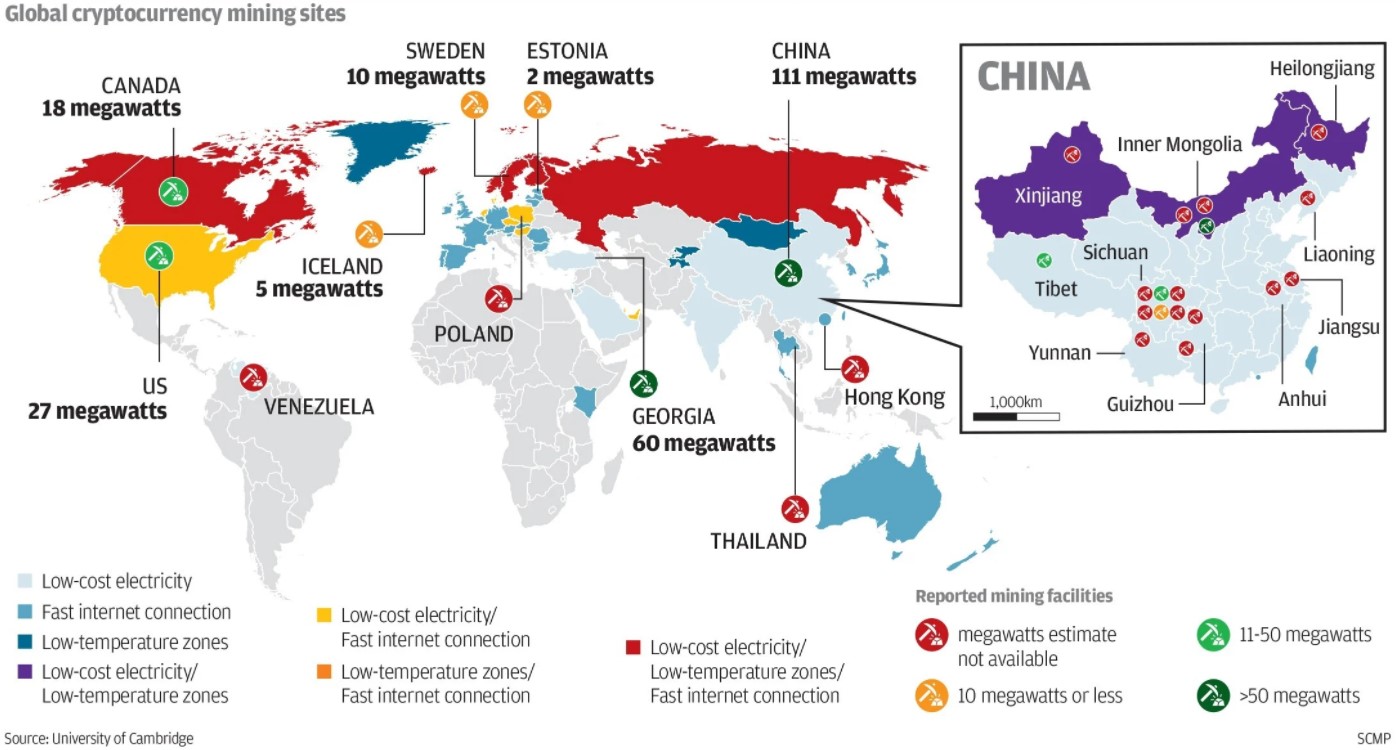The crypto community was left in shock after the announcement of China’s latest crackdown on cryptocurrencies, which included not only the ban of financial services related to cryptos and the trading of digital currencies but also the mining of said currencies.
China has been the global bitcoin mining hub throughout the years and is responsible for around 65% of all bitcoin mining worldwide, even after the recent ban.
Chinese authorities have cited issues such as the volatility of cryptocurrencies and the negative environmental effects related to the mining of cryptocurrency as the reasons for the ban, as they fear that unregulated digital currencies pose a threat to the heavily controlled Chinese economy.
But it’s not only China that has environmental concerns when it comes to the mining of bitcoin. Iran has banned energy-intensive crypto mining operations for the next four months as the country faces a major power crisis.
And the Twitter-happy founder and CEO of Tesla, Elon Musk has also recently voiced concerns on the negative environmental impact of bitcoin mining and met with top North American bitcoin miners to establish a Bitcoin Mining Council to institute reporting methods for bitcoin mining operations and their energy consumption.
Chinese provinces such as Inner Mongolia, Sichuan, and Xinjiang have been safe havens for bitcoin mining as low electricity costs in these regions have allowed the industry to flourish. Xinjiang province alone accounts for around 36% of the global bitcoin hash rate.
But the effects of local regulations are pushing large mining operations out of the country. Several big mining firms have ceased operations in China and are looking to move their operations to regions such as Central Asia and North America.
Smaller operations may choose to stay in China with the hopes that regulators may steer a blind eye, but these are mainly home-based operations with only a few machines mining under the radar.
Many miners believe that North America is the most secure region for mining bitcoin and that the political environment is ideal, but the costs are very high and this decreases the profit margins drastically.
In recent months, however, the mining of bitcoin has become very popular in certain parts of the world, especially those with low electricity costs, or government-subsidized utility rates.
Bloomberg had recently reported on the fast-growing bitcoin mining industry in Argentina, where a shrinking economy and degraded currency has made way for bitcoin miners to take advantage of the cheap energy subsidized by the government.
The American state of Montana is said to be the next green energy-powered bitcoin mining hub, as large-scale projects are underway to create solar power plants for providing energy to bitcoin mining operations.
A Montana-based company by the name of Madison River Equity LLC, which is also a subsidiary of FX Solutions and a bitcoin mining company called Atlas Power, is planning the construction of a $250 million solar energy plant to power its mining operations.
This project will boost the state’s green energy supply and also transform Butte, which is a small city in Montana with around 14,000 households and the proposed location for the plant, into a global crypto mining hub.
It’s hard to say at this point what the effects of the mining ban in China will have on the global crypto market. But as long as there’s a will, there’s a way, and bitcoin miners are finding innovative methods to curb the costs of mining by relocating to bitcoin-friendly regions of the world.

Leave a Reply